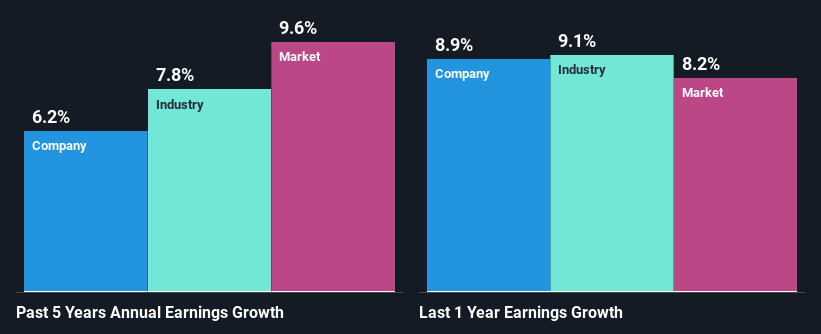Japan Tobacco’s (TSE:2914) stock is up by 4.2% over the past month. Given that stock prices are usually aligned with a company’s financial performance in the long-term, we decided to investigate if the company’s decent financials had a hand to play in the recent price move. Specifically, we decided to study Japan Tobacco’s ROE in this article.
Return on Equity or ROE is a test of how effectively a company is growing its value and managing investors’ money. Put another way, it reveals the company’s success at turning shareholder investments into profits.
View our latest analysis for Japan Tobacco
How Is ROE Calculated?
The formula for return on equity is:
Return on Equity = Net Profit (from continuing operations) ÷ Shareholders’ Equity
So, based on the above formula, the ROE for Japan Tobacco is:
12% = JP¥485b ÷ JP¥3.9t (Based on the trailing twelve months to December 2023).
The ‘return’ is the profit over the last twelve months. Another way to think of that is that for every ¥1 worth of equity, the company was able to earn ¥0.12 in profit.
Why Is ROE Important For Earnings Growth?
Thus far, we have learned that ROE measures how efficiently a company is generating its profits. We now need to evaluate how much profit the company reinvests or “retains” for future growth which then gives us an idea about the growth potential of the company. Assuming all else is equal, companies that have both a higher return on equity and higher profit retention are usually the ones that have a higher growth rate when compared to companies that don’t have the same features.
Japan Tobacco’s Earnings Growth And 12% ROE
At first glance, Japan Tobacco seems to have a decent ROE. Even when compared to the industry average of 14% the company’s ROE looks quite decent. This probably goes some way in explaining Japan Tobacco’s moderate 6.2% growth over the past five years amongst other factors.
Next, on comparing with the industry net income growth, we found that Japan Tobacco’s reported growth was lower than the industry growth of 7.8% over the last few years, which is not something we like to see.

Earnings growth is a huge factor in stock valuation. The investor should try to establish if the expected growth or decline in earnings, whichever the case may be, is priced in. Doing so will help them establish if the stock’s future looks promising or ominous. What is 2914 worth today? The intrinsic value infographic in our free research report helps visualize whether 2914 is currently mispriced by the market.
Is Japan Tobacco Making Efficient Use Of Its Profits?
While Japan Tobacco has a three-year median payout ratio of 71% (which means it retains 29% of profits), the company has still seen a fair bit of earnings growth in the past, meaning that its high payout ratio hasn’t hampered its ability to grow.
Besides, Japan Tobacco has been paying dividends for at least ten years or more. This shows that the company is committed to sharing profits with its shareholders.
Summary
Overall, we feel that Japan Tobacco certainly does have some positive factors to consider. The company has grown its earnings moderately as previously discussed. Still, the high ROE could have been even more beneficial to investors had the company been reinvesting more of its profits. As highlighted earlier, the current reinvestment rate appears to be quite low. Having said that, the company’s earnings growth is expected to slow down, as forecasted in the current analyst estimates. To know more about the latest analysts predictions for the company, check out this visualization of analyst forecasts for the company.
Valuation is complex, but we’re helping make it simple.
Find out whether Japan Tobacco is potentially over or undervalued by checking out our comprehensive analysis, which includes fair value estimates, risks and warnings, dividends, insider transactions and financial health.
Have feedback on this article? Concerned about the content? Get in touch with us directly. Alternatively, email editorial-team (at) simplywallst.com.
This article by Simply Wall St is general in nature. We provide commentary based on historical data and analyst forecasts only using an unbiased methodology and our articles are not intended to be financial advice. It does not constitute a recommendation to buy or sell any stock, and does not take account of your objectives, or your financial situation. We aim to bring you long-term focused analysis driven by fundamental data. Note that our analysis may not factor in the latest price-sensitive company announcements or qualitative material. Simply Wall St has no position in any stocks mentioned.

















